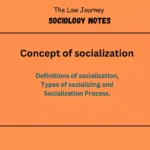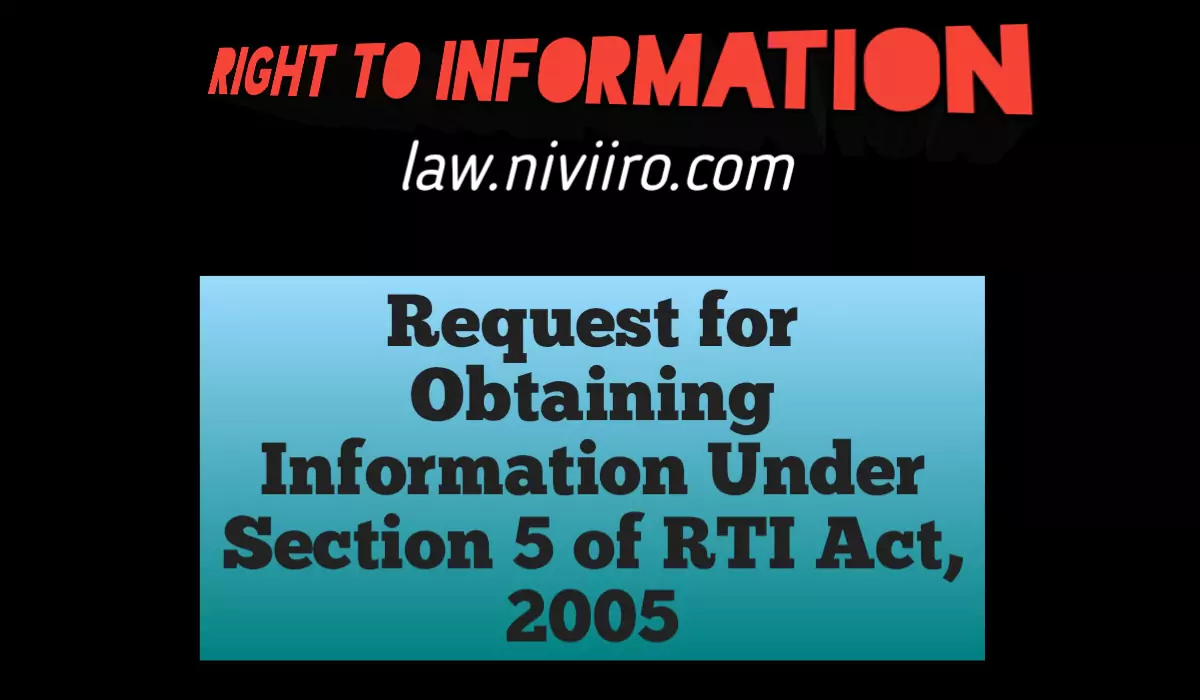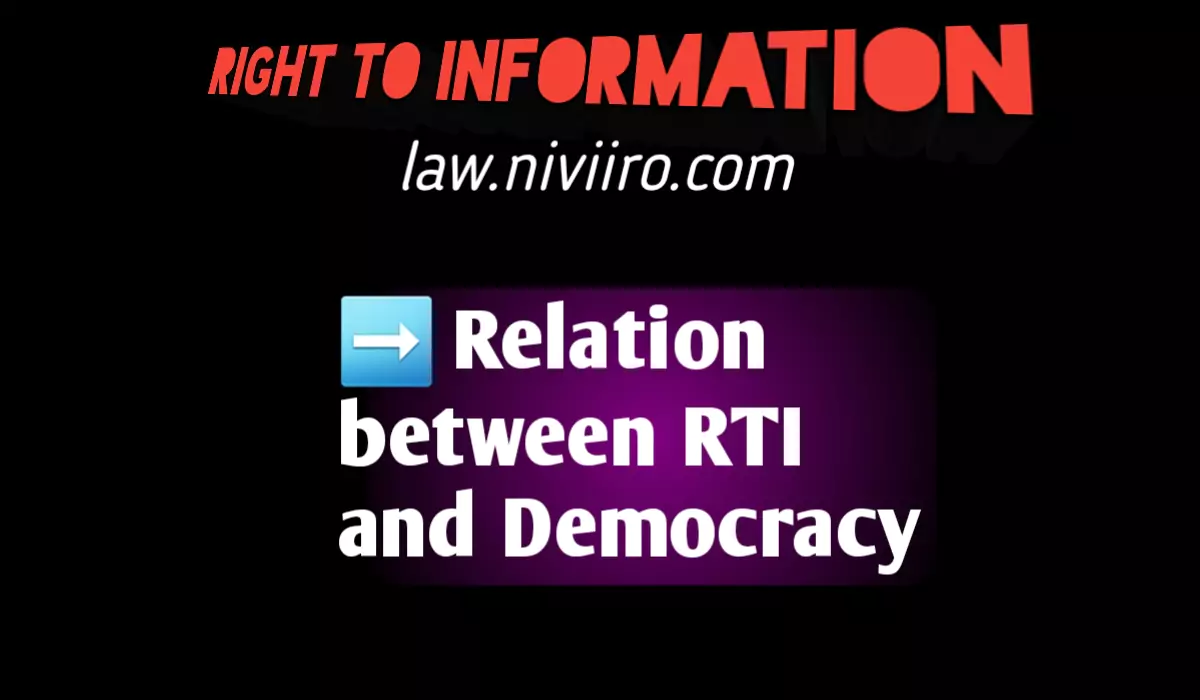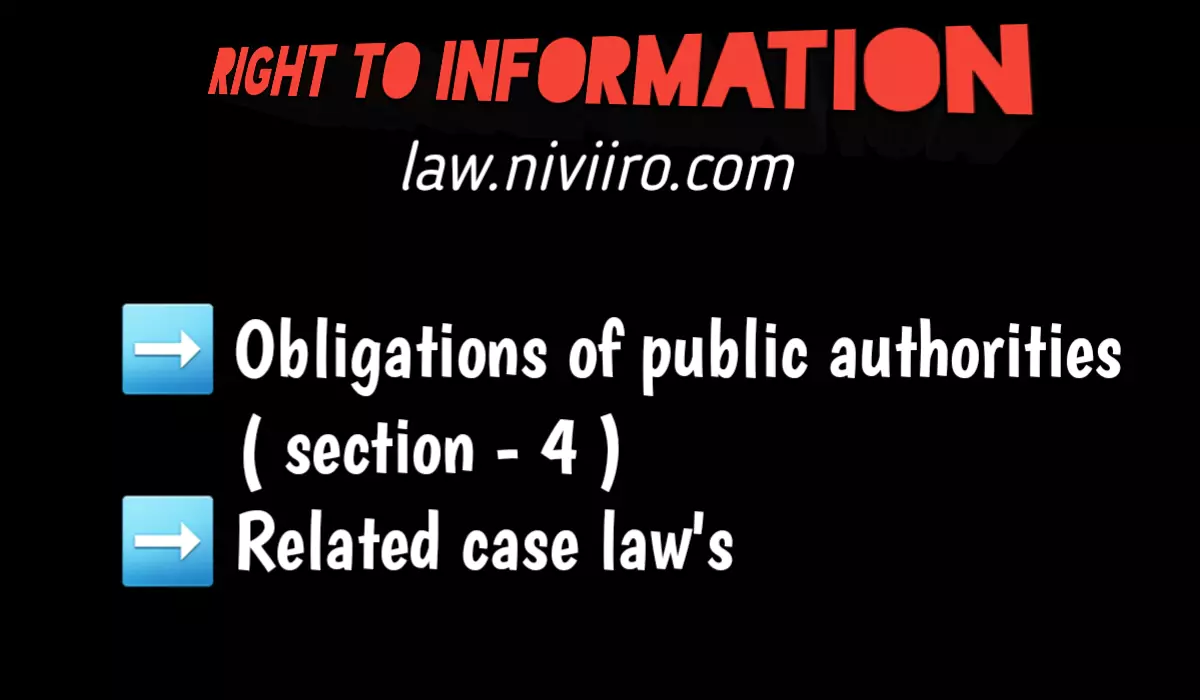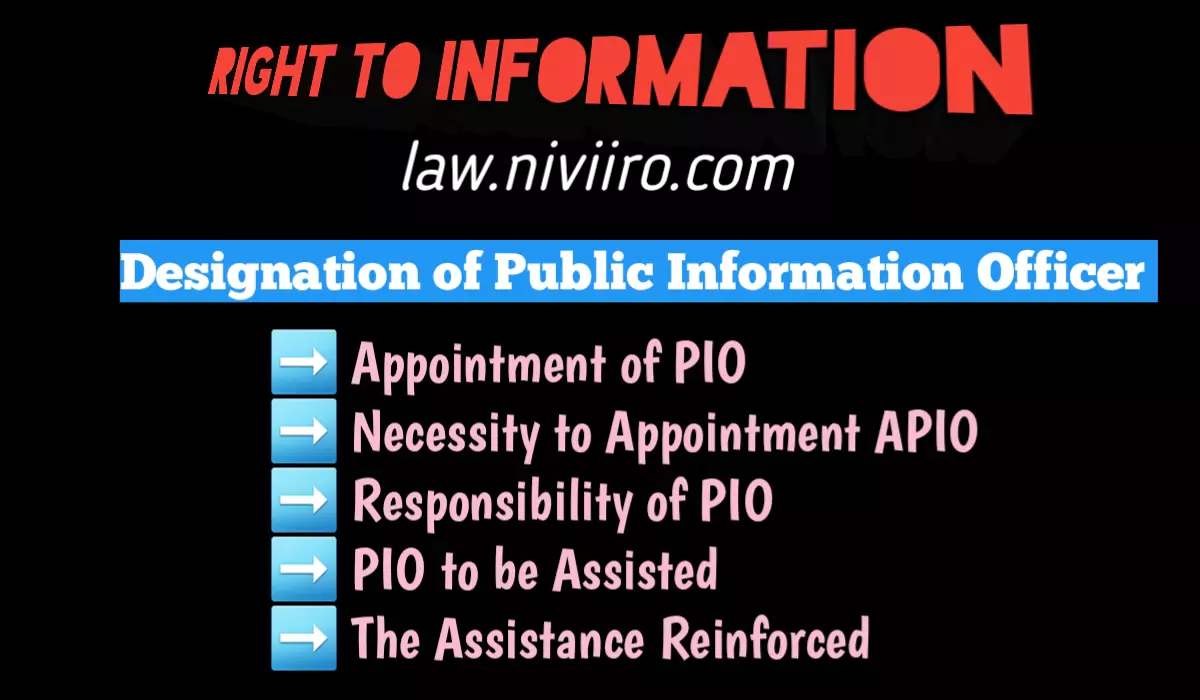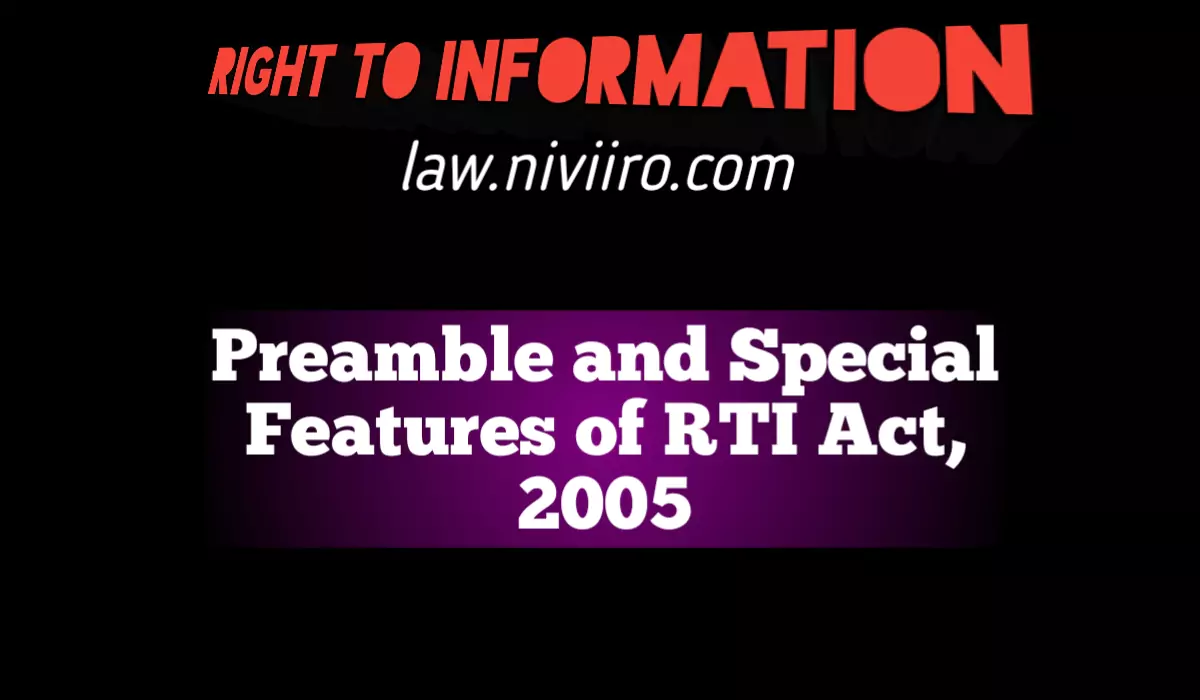Request For Obtaining Information under RTI Act, Following are the process for Obtaining Information from a Public Authority under Section 7 of Right to Information Act, 2005.
Filing of The Application And The Obligation of The PIP And The APIO { Sec. 5(1) }
(1) A person, who desires to obtain any information under this Act, shall make a request in writing or through electronic means in English or Hindi or in the official language of the area in which the application is being made, accompanying such fee as may be prescribed, to
(a) the Central Public Information Officer or State Public Information Officer, as the case may be, of the concerned public authority;
(b) the Central Assistant Public Information Officer or State Assistant Public Information Officer, as the case may be, specifying the particulars of the information sought by him or her:
Provided that where such request cannot be made in writing the Central Public Information Officer or the State Public Information Officer, as the case may be, shall render all reasonable assistance to the person making the request orally to reduce the same in writing.
Explanation – The Act requires that the request for information be made to either the PIO or the APIO in question. The PIO is available in all administrative units or offices of the Public Authority, according to Section 5 (1). APIO is also available at the sub-division or sub-district level under the Act. As a result, the Act allows the applicant to direct his or her request for information to either the PIO or the APIO.
Both the PIO and APIO responsible must accept such applications whenever they are handed over during office hours, and they cannot refuse to accept them.However, after such receipt the APIO would send this application to the PIO as per provisions of Section 5(2) of the Act, for further necessary action at his end.
This application may be submitted in either written or electronic form. It could be in writing/printed, or it could be sent electronically, such as via e-mail or fax. The applicant may select any way based on his circumstances and convenience. Furthermore, it may be written in English, Hindi, or the official language of the country in which the application is being filed. It means that the applicant’s choice of language is unaffected, and the SPIO and ASPIO concerned cannot compel the application to use a specific language.
As a result, the applicant will be free to use any language and any method of making the application. The petitioner must provide the specifics and details of the information he seeks. He must clearly define and explain the type and shape of information needed. He may also specify whether such material is to be provided in printed, written, or electronic form. If he is looking for it electronically or through another available channel, he will explain it clearly. However, the SPIO may pick the manner of information transmission based on the availability of resources.
Each such application would be accompanied by the statutory fee, unless the applicant falls below the poverty line as defined in Section 7(5) of the Act. Section 27 of the Act requires the competent government to establish such a fee. However, it should be remembered that payment of the stipulated amount is one of the main requirements of application validity. If the application is received without the required fee, it is not a valid application under the Act and the provisions of the Act are not applicable.
The required period for responding to such an application under Section 7 (1) of the Act would begin only with the receipt of such fee. In other words, if the prescribed fee is not paid, the SPIO is not required to respond to the application, and it is simply refused, with no other consequences such as an appeal or punitive procedures. Hence, unless exempted, each application under the Act must be accompanied by the prescribed fee.
Then, proviso to Section 6 (1) reiterates the all pervading gesture of goodwill and magnanimity. The SPIO has to be courteous and cooperative with the applicant If the applicant is not in position to make a written request due to obvious reasons the SPIO concerned would arrange and extend all reasonable assistance to reduce his oral request in writing.
The case of an illiterate person could be appropriate example wherein the SPIO may provide him writing assistance. It basically conveys that the Act is not merely a legal document but it has to be enforced with a humanistic and charitable feeling so that every section of society may become an active participant in it and the right to information may unfold and bloom on the cherished lines.
Postmaster Can Act As An APIO | Request For Obtaining Information under RTI Act,2005
The appointment of a PIO is primarily intended to assist the applicant in a variety of ways. In P. Muthaiah v. P.M.O.,’ the CIC observed that even the Postmaster of the post office where the applicant intended to post his RTI Act application could function as an APIO and assist him in preparing and publishing his application as stipulated in Section-6(1) of the Act. This observation by the CIC may go a long way towards exploring the RTI Act’s public-friendly attitude.
No Addition In Appeal | Request For Obtaining Information under RTI Act,2005
When filing an application under Section 6(1) of the Act, keep in mind that the relevant information must be clearly and specifically provided in the application. Under the Act, any information not specified in the application is not required to be submitted. No such addition can be made in any level of appeal. It is due to the fact that the only document before the PIO is the application, which must govern his decision. The PIO is not allowed to go above and beyond what is specified in the application.
Therefore, to consider any additional request under the Act at any subsequent stage including the appeal would not be justified.
The Absolute Right { Sec. 5(2) } | Request For Obtaining Information under RTI Act,2005
(2) An applicant making request for information shall not be required to give any reason for requesting the information or any other personal details except those that may be necessary for contacting him.
Explanation – This clause attempts to give the right force and absoluteness. This removes the right from the realm of reasoning and justification. It explains that the Act’s right to information is not based on any rationale or justification provided by the applicant. To this sense, it is an absolute right, and no thinking or justification is required to request information under the Act. In other words, it is not the SPIO’s jurisdiction to dispute the justification or reasonableness of the information sought. The SPIO is required to provide the information once the application has been properly filed under the requirements of the Act, unless otherwise exempted under the Act.
That would be beneficial to the enforcement of rights. If it had been subject to any condition or explanation, the officer making the decision would have had corresponding discretion. Once completed, the potential of death during infancy could not be ruled out. Otherwise, it would have violated the Act’s spirit and philosophy. The right to information is based on the principle that, with a few exceptions, all information relevant to the operation of a public authority in a democratic society is public information. A democratic government governs on behalf of the people, and they have the right to know everything about it.
Every information in the process is theirs, and they are not have to provide any cause or justification for seeking such information. As a result, this provision strictly adheres to the spirit of the Act. The applicant is not obliged to provide personal information unless it is required for correspondence and contact. Once it is established that he is a citizen of India, he has the right to obtain information and is not obligated to reveal any further facts. This is what is known as an absolute right in this context.
Transfer of Application { Sec. 5(3) } | Request For Obtaining Information under RTI Act,2005
(3) Where an application is made to a public authority requesting for an information –
(i) which is held by another public authority; or
(ii) the subject matter of which is more closely connected with the functions of another public authority,
the public authority, to which such application is made, shall transfer the application or such part of it as may be appropriate to that other public authority and inform the applicant immediately about such transfer: Provided that the transfer of an application pursuant to this sub section shall be made as soon as practicable but in no case later than five days from the date of receipt of the application.
Explanation – The PIO’s duties under the Act are based on the assumption that he will provide all information under his control and in his possession. This sub-section addresses the circumstance in which the information sought is not possessed by the public authority to which the Act application is made. Various scenarios have been depicted. First, the information may be held by another Public Authority, and second, the information’s subject matter may be intimately related to the operation of another Public Authority.
Under either of these two scenarios, the PIO to whom the application was made is unable to disclose information in the normal course of business because another PIO controls the affairs relevant to the said information. To address this situation, the Act includes a procedure for transferring such requests, which requires the PIO receiving such an application to transfer the application to the concerned PIO within 5 days of receipt, and the applicant is notified accordingly to allow him to pursue it with the concerned PIO.
Besides from directing the application to the appropriate party, the Act considers the applicant’s potential difficulty as well as his ignorance. Given the country’s socioeconomic situation, it is not the common man’s responsibility to apply the Act’s provisions exactly as envisaged. As a result, this unique feature has been designed to cure such unintentional and incorrectly addressed applications.
Right To Information And Obligations of Public Authorities
Rather than returning the application the Act directs it to right quarter. However, this provision does not give an absolute discretion to the applicants to apply to any PIO they like. If it is done it would create a situation of total confusion and inconvenience to the PIO to whom such application is addressed This facility is available only in case of a bona fide error of judgment at the level of the applicant.
It is because of the fact that Section 6(1)(a) mandates at to be applied to the PIO of the concerned authority. It means the applicant is obliged to apply it to the PIO of the concerned Public Authority from whom the information is to be sought. Thus it is obligatory to the applicant to apply it to the authority from whom he wants to seek information. The provisions of transfer are just facilitating provisions subject to reasonable expectations of conduct from the applicant.
However, the Act speaks only regarding the transfer of application which means that the application as such along with the enclosures with it including the prescribed fee would be transferred. But it has been noticed that the fee is normally addressed to or payable to the PIO to whom the application is originally moved. Normally such fee cannot be transferred to the next PIO to whom the application is transferred.
It is because of the fact that the treasury challan or demand draft or postal order or cash receipt is in favour of the concerned PIO and the same has either to be refunded or returned to the applicant. Thus this fee is non-transferable to the new PIO. If the fee has to be got refunded to the applicant and to be repaid to the new PIO the very purpose of transfer of application would stand defeated. Neither the time would be saved nor would it be convenient to the applicant.
Therefore, the best way out is to keep the fee with the first PIO and to transfer the application to the next. Only an endorsement has to be made on the application confirming that the required fee has been paid and retained. The fee ultimately goes to the Government exchequer and it hardly matters which of the two PIOs receives it.
However, in case of Boards and corporations the appropriate Government will have to take a decision under Section 27 of the Act To avoid any inconvenience to the applicant, the tee may be retained by the original receiver and initially an endorsement to that effect may be made on the application to be transferred and subsequently after depositing the same in the accounts, a fresh draft may be issued in favour of the authority to which the application has been transferred
Responsibility After The Transfer
It may be clarified further that once the application is duly transferred to the Public authority under the provisions of the RTI Act, it is the liability and responsibility of the concerned Public authority, to which the application is transferred, to provide the information which is in its possession or custody If such Public authority fails, it is not the responsibility of the transferring authority. The CIC(FB) considered this issue in Arvind Kejriwal v. DOPT, Govt. of India,” and held that once the RTI application was transferred to the actual custodian of the records, it was incumbent on the part of such authority to respond to the RTI request.
However, it is not true within the same Public authority. If the information is available with other section of the same Public authority, the responsibility of the PIO would not be affected. Though he may seek the assistance of other officers/officials of the same Public authority under the provisions of Section 5(4) & (5), but his responsibility would not lessen in any manner. It is the responsibility of the PIO to collect the information within a Public authority and supply it to the applicant. The provision of Section 6(3) would not be applicable in such a situation.
The CIC (FB) held in Subhash Chandra Agarwal v. Supreme Court of India,’ that each of the sections or departments of a Public Authority cannot be treated as a separate or distinct Public Authority. If any information is available with one section or the department, it shall be deemed to be available with the Public Authority as a single entity. The PIO cannot take a view contrary to it.
Related Post | Request For Obtaining Information under RTI Act
- Central Information Commission | Composition | Term | Removal
- State Information Commission | Composition | Term and service | Removal
- Third Party Information Under RTI Act, 2005
- Powers and functions of the Central Information Commission and State Information Commission
- Designation of Public Information Officers Under RTI Act
- Preamble and Special Features of RTI Act, 2005
- Relation between RTI and democracy
- Obligations of Public Authorities Under RTI Act
References
- Right To Information Law & Practice by R. K. Verma, 2010
- Commentary on The Right to Information Act by J. N. Barowalia, 2010
- The RTI Story: Power to the People by Aruna Roy, 2018
- Right to Information by K. B. Rai, 2020













